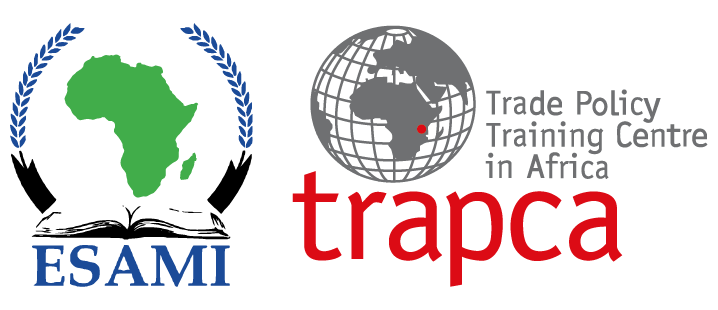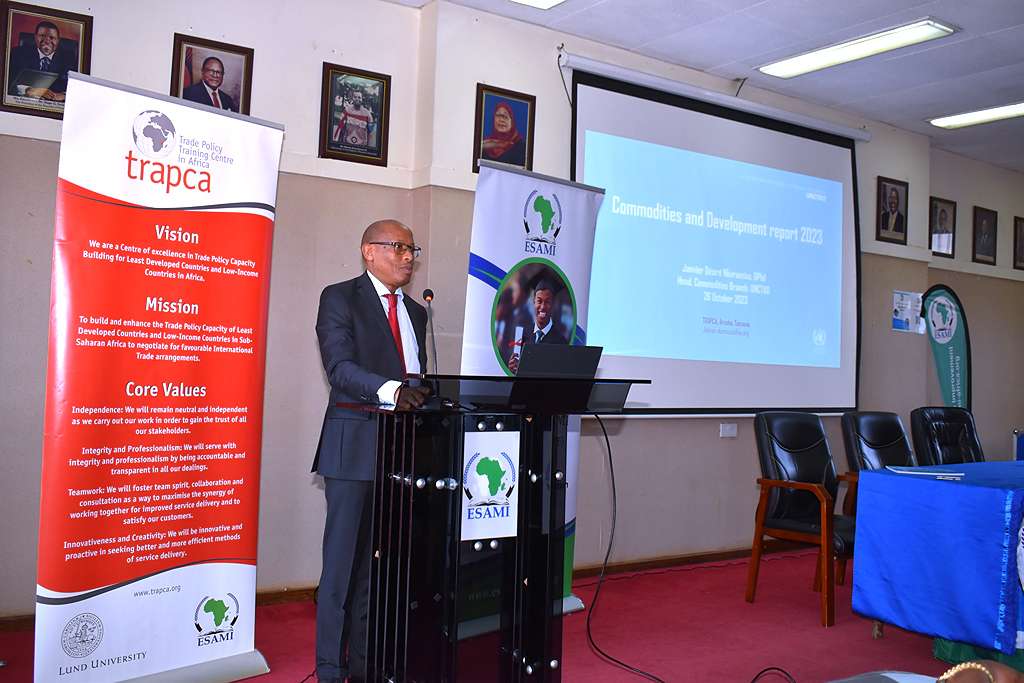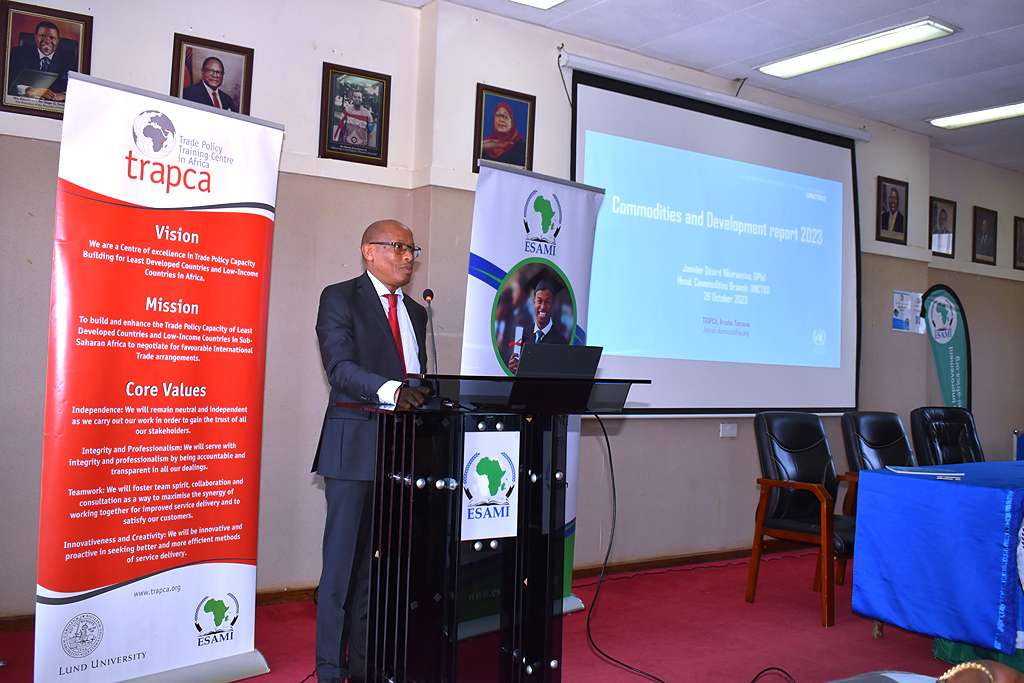The United Nations Conference on Trade and Development (UNCTAD) launched its 2023 Commodities and Development Report at the Eastern and Southern African Management Institute (ESAMI) in Arusha, Tanzania. The launch ceremony was presided over by the ESAMI Director of Finance and Administration, Dr David Kalaba, who expressed his excitement about the report and its potential to help African countries reduce their reliance on commodity exports and develop more diversified economies. Dr. Janvier Désiré Nkurunziza, Head of the Commodities Branch at UNCTAD and ESAMI-trapca Adjunct Faculty launched the report, titled “Inclusive Diversification and Energy Transition Calls for commodity-dependent developing Countries (CDDCs) to invest in value addition, diversify their economies, and transition to renewable energy to reduce their reliance on commodity exports.
In his presentation of the report, Dr Nkurunziza highlighted that Africa is the most commodity-dependent region in the world, with most of the CDDCs defined by having at least 60 per cent of their total merchandise export revenues from commodity exports. This dependency exposes African countries to the volatility of global commodity markets and makes them vulnerable to external shocks. Dr Nkurunziza also noted that Africa’s commodity dependence is concentrated in a few key sectors and commodities, such as agricultural products, minerals ores and metals, and energy products. This lack of diversification makes African economies more vulnerable to changes in demand for these commodities.
It was further indicated that the report also shows that Africa’s commodity dependence has resulted in the following challenges:
- Vulnerability to high price volatility and hence income instability
- Limited value addition and declining ToT
- Environmental degradation
- Social inequality
- Dutch disease: de-industrialization; high export concentration
- Low investment, increasing sovereign risk, high debt, currency devaluations, slow growth.
- Small share of commodity value chain accruing to producers especially where they are small.
The report also highlights the traditional drivers of diversification, such as human capital development, competitive industries, and reliable infrastructure, including access to energy and information and communication technologies (ICTs). African countries can promote inclusive diversification and energy transition by:
- Investing in education and training: African countries need to invest in education and training to develop the skills needed for a diversified economy.
- Improving infrastructure: African countries need to improve their infrastructure, such as roads, railways, and ports, to support economic diversification and trade.
- Creating a conducive business environment: African countries need to create a conducive business environment to attract investment and promote economic growth.
- Supporting small and medium-sized enterprises (SMEs): SMEs play a vital role in economic diversification and job creation. African countries need to support SMEs through access to finance, training, and markets.
- Prioritizing green all-inclusive industrial policies: Just diversification and green transitions in CDDCs will require strong political commitment, each country has to chart its own path – making a detailed assessment of opportunities and obstacles and designing a green industrial policy.


